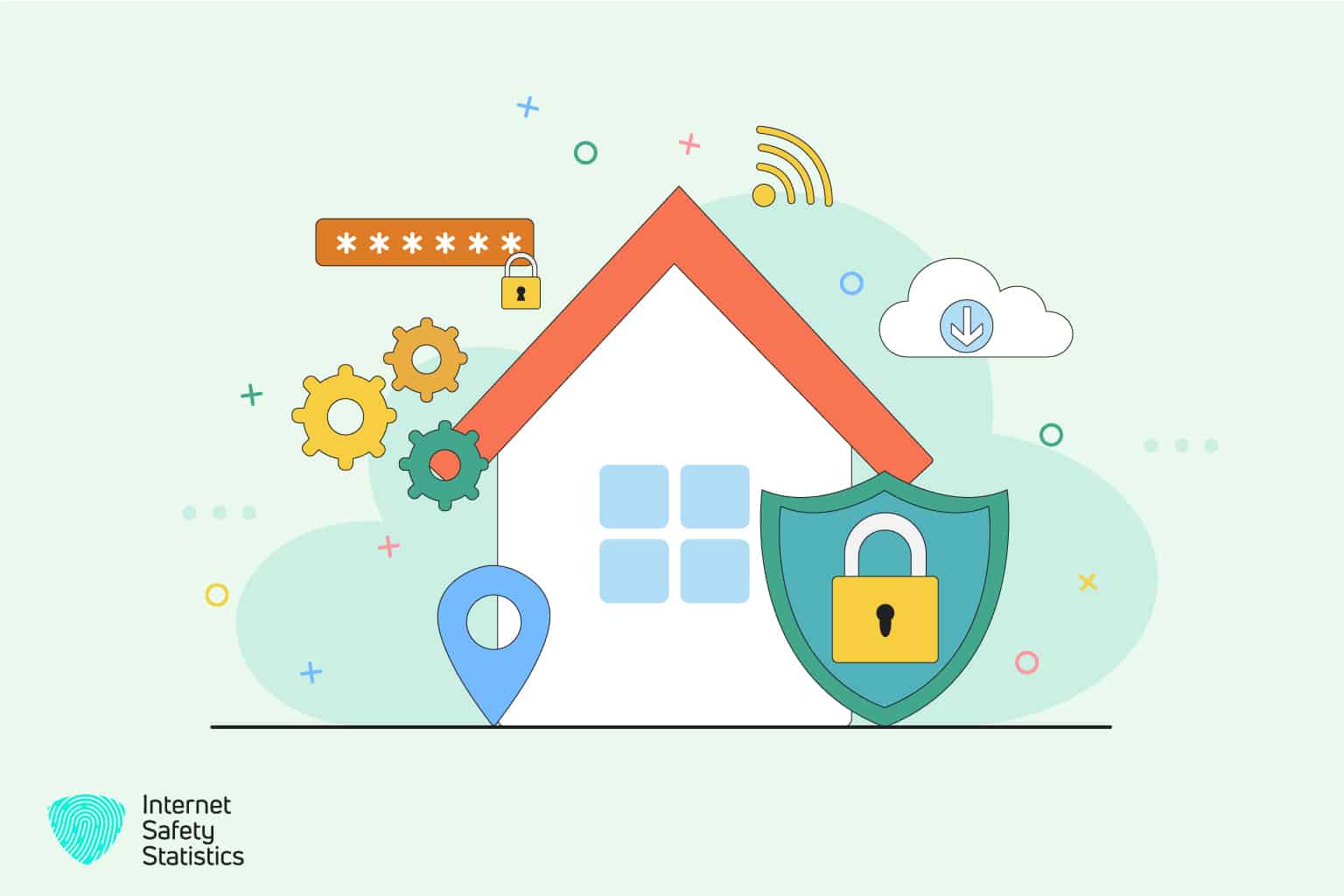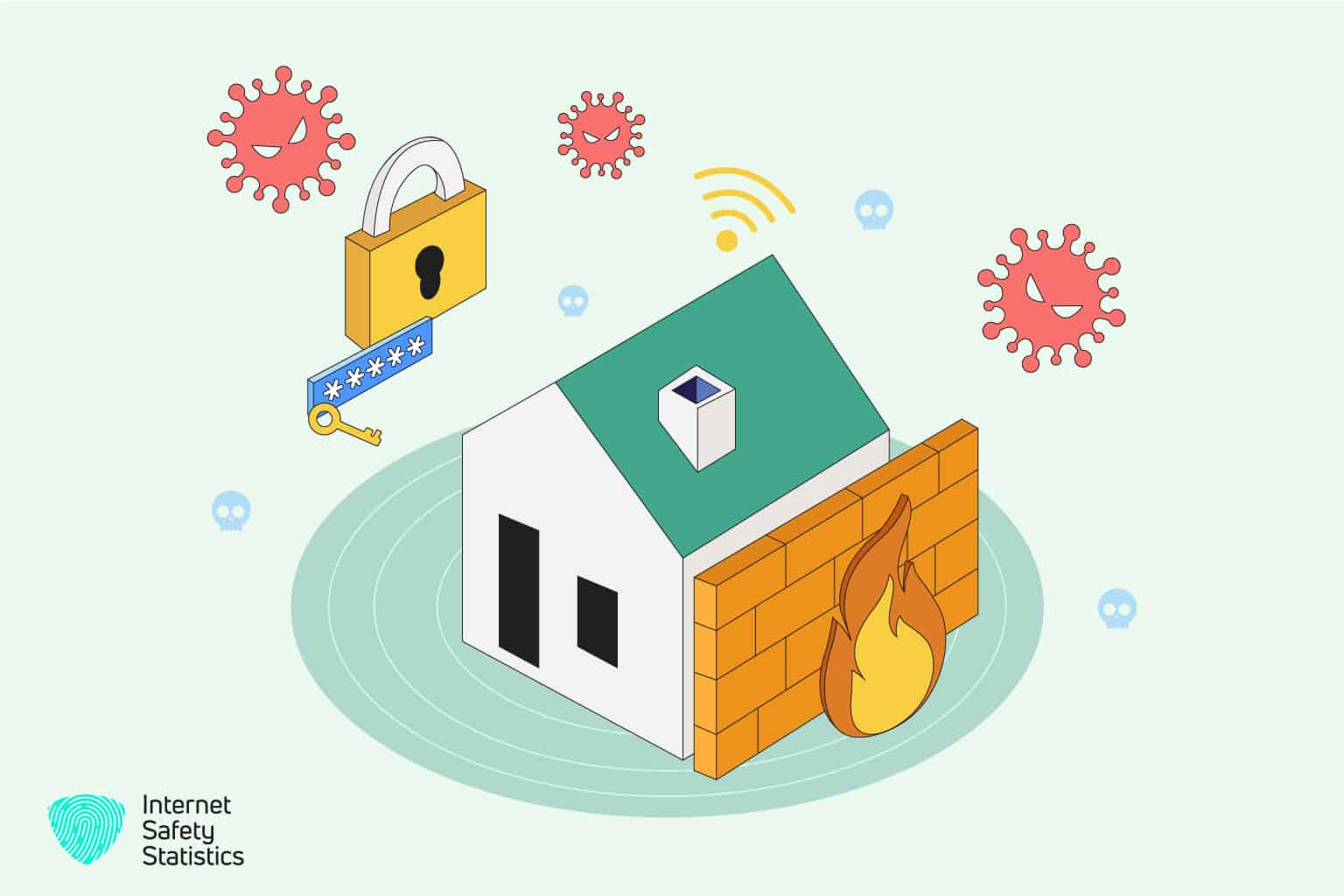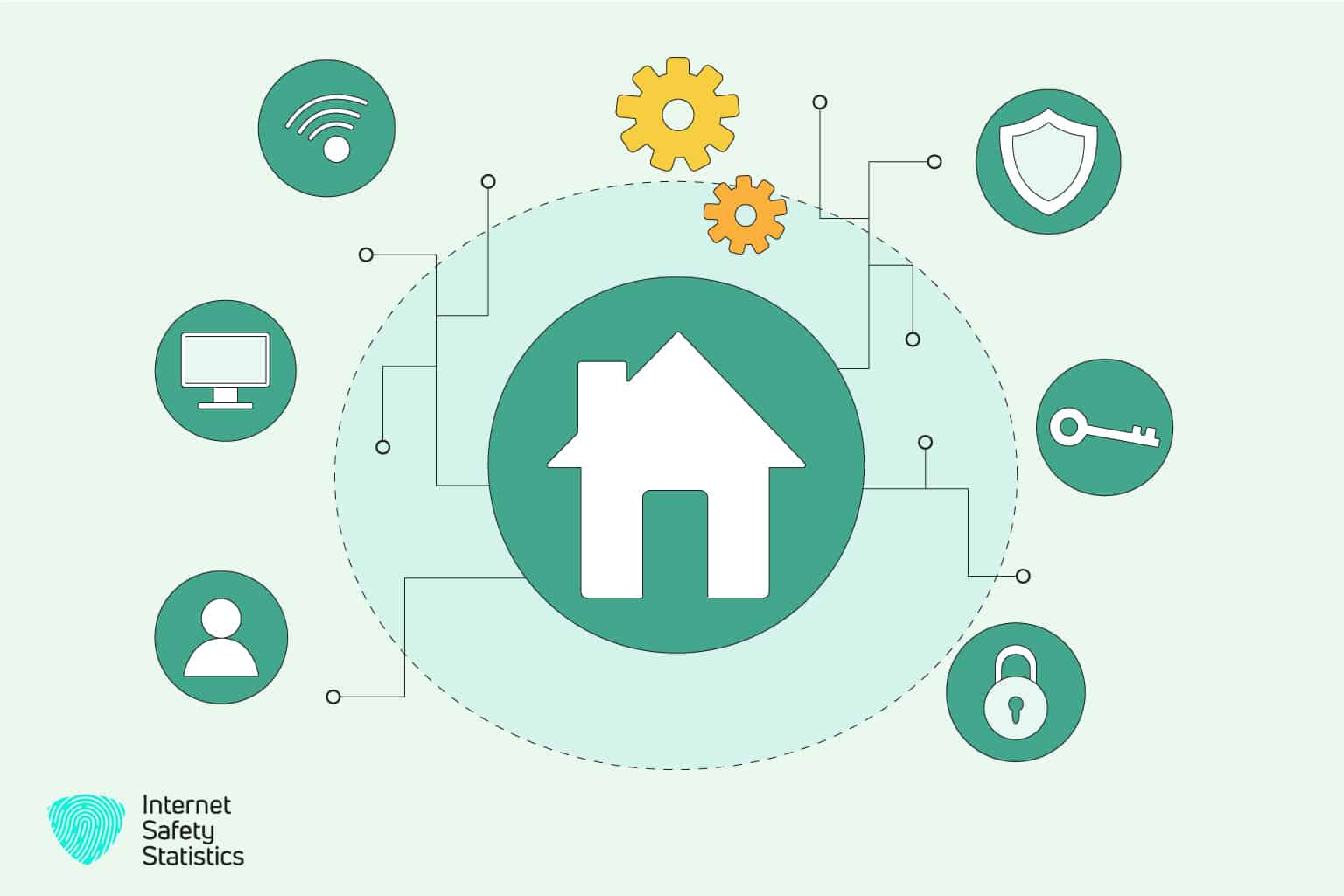
A firewall is a must for any home network security solution. It functions as a firewall between your local network and the internet, blocking possible threats and protecting your devices and sensitive information. However, because so many different firewalls are available, choosing the best firewall for your home network may take some time.
Why Is It Important to Have a Firewall for Your Home?
A firewall protects the home network and the internet, preventing unauthorised access and filtering out potentially harmful traffic. It may also guard the network against hacking attempts, prohibit unauthorised access to critical information, and avoid malware infestations.
The built-in firewall included in the majority of home routers offers crucial security. Still, it must be correctly set and updated to provide the most robust defence; it’s also advised to utilise extra security measures like strong passwords, antivirus software, and frequent upgrades.

Why Does a Home Network Need a Firewall?
A firewall is essential for a home network for several reasons, such as:
- Protection against cyber threats: To prevent malware infections, stop unauthorised access to sensitive data, and protect the network from hacking attempts, a firewall is a barrier between the home network and the internet that blocks unauthorised access and filters out potentially harmful traffic.
- Privacy protection: A firewall can assist in preserving privacy by limiting access to personal data and preventing unauthorised monitoring of your online activity.
- Compliance with regulations: Depending on your location, regulations may require a firewall to protect against cyber threats and safeguard personal information.
- Peace of mind: Having a firewall might give comfort in knowing that your network and personal information are protected against cyber threats.
While home networks may not have the same security risks as business networks, they can still be vulnerable to cyber-attacks. A firewall is a total security solution that helps to restrict unauthorised access and filter out potentially harmful information, adding a critical layer of security to your home network. Therefore, ensuring your firewall is configured correctly and updated is essential to provide the best possible protection.
How Can You Firewall a Home Network?
Firewall a home network can be done by following a few steps, such as:
- Use a router with a built-in firewall: Most home routers have a built-in firewall that provides essential protection. Make sure the router’s firewall is enabled and properly configured.
- Update the router’s firmware: To ensure security flaws are corrected, keep the firmware on the router up to date.
- Use a strong and unique password: Set a strong and unique password for the router to prevent unauthorised access.
- Disable remote management: If the router allows remote management, disable it to prevent unauthorised access.
- Enable WPA2: enable WPA2 encryption on the wifi network to prevent unauthorised access.
- Antivirus software: Install antivirus software on computers and other electronic devices.
- Virtual Private Network (VPN): a VPN will encrypt the connection and shield it from unauthorised access if it requires access to the home network from the outside world.
- Configure firewall rules: If the router allows it, set up firewall rules to allow or deny traffic based on certain factors like IP addresses, ports, and protocols.
- Monitor network activity: Use network monitoring tools to monitor network activity and detect potential security threats.
Firewalling the home network involves using a router with a built-in firewall, keeping it updated, and taking additional security measures such as strong passwords, enabling WPA2 encryption, using antivirus software, and configuring firewall rules. These steps can help protect the home network against cyber threats and keep all personal information safe.

What Is the Best Firewall for Home Networks?
The best firewall should often balance pricing, usability, and security. Here are the best firewalls for home networks:
1. pfSense
pfSense is an open-source firewall that runs on commodity hardware. IIts web-based interface makes configuration and management simple. pfSense includes a stateful packet inspection (SPI) firewall, VPN support, traffic shaping, and more.
Generally, pfSense is a strong and adaptable firewall that can be set to fit the needs of various home network configurations. In addition, its open-source nature and large user community make it a popular choice for small businesses and home networks.
2. Ubiquiti UniFi Security Gateway
The Ubiquiti UniFi Security Gateway is a compact firewall with advanced features like deep packet inspection, VLAN, and VPN support. In addition, it has a user-friendly web interface and can be managed through the UniFi Controller software. The UniFi Security Gateway also integrates with other UniFi networking products, making it an excellent choice for those seeking a unified network management solution.
3. Fortinet FortiGate
The Fortinet FortiGate is a robust firewall that provides enterprise-level security features. In addition, it includes features like application control, intrusion prevention, and sandboxing, as well as VPN support and traffic shaping. The FortiGate also has a web-based management interface and can be managed through the Fortinet Security Fabric, which provides centralised management for multiple Fortinet products.
4. Sophos XG
The Sophos XG Firewall is a feature-rich firewall that provides advanced security features like deep packet inspection, sandboxing, and application control. It also includes VPN support and traffic shaping. In addition, the XG Firewall has a user-friendly web interface and can be managed through the Sophos Central management platform, which provides centralised management for multiple Sophos products.
5. Cisco Meraki MX
The Cisco Meraki MX is a cloud-managed firewall that provides advanced security features like intrusion prevention, content filtering, and malware protection. It also includes VPN support and traffic shaping. In addition, the MX can be managed through the Meraki Dashboard, which provides centralised management for multiple Meraki networking products.
6. Software Firewall
A software firewall is an app that keeps track of incoming and outgoing traffic. Windows and macOS come with built-in software firewalls that are effective and easy to use. The advantage of a software firewall is that it is usually free and does not require any additional hardware.
A desktop or laptop computer can receive fundamental security through a software firewall. Still, more is needed to protect an entire network. Therefore, it is crucial to utilise other security measures, like antivirus software and strong passwords, To provide optimum protection against cyber attacks and maintain the software firewall updated.
7. Hardware Firewall
A hardware firewall is a customised device between your modem and router that filters all incoming and outgoing traffic. A hardware firewall is more secure than a software firewall because assaults that target your computer’s operating system cannot affect it. Peer-to-peer file sharing and online gaming are two examples of traffic that a hardware firewall can restrict. However, hardware firewalls can be expensive, and their configuration can be complex.
A hardware firewall is a more robust and effective solution for network security than a software firewall. It offers excellent network protection and is advised for organisations or people with sensitive data or high-security demands. However, hardware firewalls can be expensive, and their configuration can be complex, so they may only be suitable for some.
8. Unified Threat Management (UTM) Firewall
UTM firewall is a comprehensive solution that combines various security technologies, including antivirus, intrusion detection and prevention, content filtering, and application control, in a single appliance. A UTM firewall provides a high level of security and can be easily managed through a web interface. However, UTM firewalls can be expensive and require a subscription for updates and support.
9. Next-Generation Firewall (NGFW)
A next-generation, more advanced UTM firewall uses advanced threat detection techniques, such as deep packet inspection, sandboxing, and machine learning, to identify and block sophisticated attacks. NGFWs are suitable for more extensive networks with a higher risk of cyber-attacks. However, they may need a high degree of technical skill to design and run, and they are more expensive than other kinds of firewalls.
Because they offer a complete security solution beyond standard firewalls and may assist in guarding against a wide range of cyber threats, NGFWs are advised for companies with high-security demands, such as financial institutions, healthcare providers, and governmental organisations. However, NGFWs can be expensive and require specialised expertise to manage and configure. Still, more is needed to protect an entire network. Therefore, it is crucial to utilise other security measures, like antivirus software and strong passwords, and maintain the software firewall updated.
Well! The best firewall for the home network depends on your needs and budget. If money is tight, a software firewall is a viable solution. On the other hand, a hardware firewall, UTM firewall, or NGFW may be a better option if you need additional protection and have the money to pay for it. Whatever firewall you choose, keeping it updated and configured correctly is essential.
